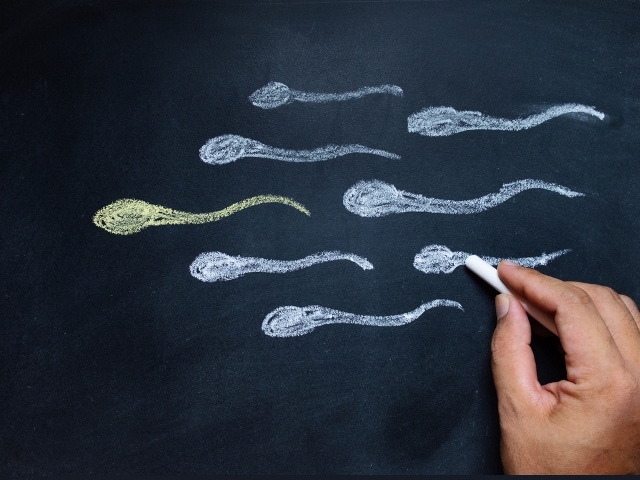A Guide to Male Fertility and Infertility
27 May 2021

27 May 2021

Planning for a pregnancy is an exciting time, but it can be also be deeply frustrating when we encounter roadblocks along the way. We often have conversations about women’s fertility, but we don’t chat as much about the guys in our lives. We’re here to change that! Male fertility can be a really important part of your IVF journey.
In this article, we go over what you need to know about male fertility and infertility and what you can do to create the best chance of conception.
It’s common for male fertility to come up in family planning. Our doctors tell us that on average, a third of difficulties conceiving can be linked to male infertility. There are a number of factors related to this.
Semen can sometimes have little to no sperm. Sperm can be abnormally shaped or have low motility. Factors like this, which are usually genetic, can stop sperm from being available for insemination.
Let’s talk biology. There are a number of tubes sperm has to pass through in order to get to the egg: the epididymis, the vas deferens and the urethra. Names aside, all you need to know is that if there are blockages along the line, it can make it harder for the sperm to have clear a passage to insemination.
This is when we think about trouble with erections, premature ejaculation or retrograde ejaculation (when semen enters the bladder, rather than the penis). Or when the reproductive system has suffered traumas like physical injury or chemotherapy. Chronic illnesses and hormonal imbalances can also come up here.
Issues like these can feel overwhelming, but the fertility specialists at Monash IVF are here for you. Semen analysis and medical history assessments are both options that will help us learn more about the specifics of your situation. After this, we can talk about fertility treatment strategies such as artificial insemination, surgery, and IVF treatment.
There isn’t one treatment for male infertility, but men can make conscious lifestyle choices that reduce the likelihood of male infertility and create an environment for healthy sperm. This means saying yes to regular exercise and a balanced diet, and no to cigarette smoking, excessive drinking and recreational drugs. We also suggest avoiding anabolic steroids and overly tight underwear, as these can affect sperm production too.
These are tricky things to talk about! There’s a lot of information and support for women’s fertility struggles, but not as much for men. It doesn’t have to be this way. If your male partner is struggling with infertility, it’s important for him to know that he is supported. This can mean talking to him about his experiences, encouraging him to chat with a counsellor and allowing him the space to make healthy fertility choices on your shared journey.
At the end of the day, challenges to fertility are something you face hand in hand.
Male fertility is a big consideration for lots of couples trying to conceive. The team at Monash IVF want you to have the best chance of conception possible, and we are here to support you every step of the way.

Wherever you are on your journey, one of our supportive nurse enquiry team members can help you understand your options and take the next step. These conversations are free and informative.